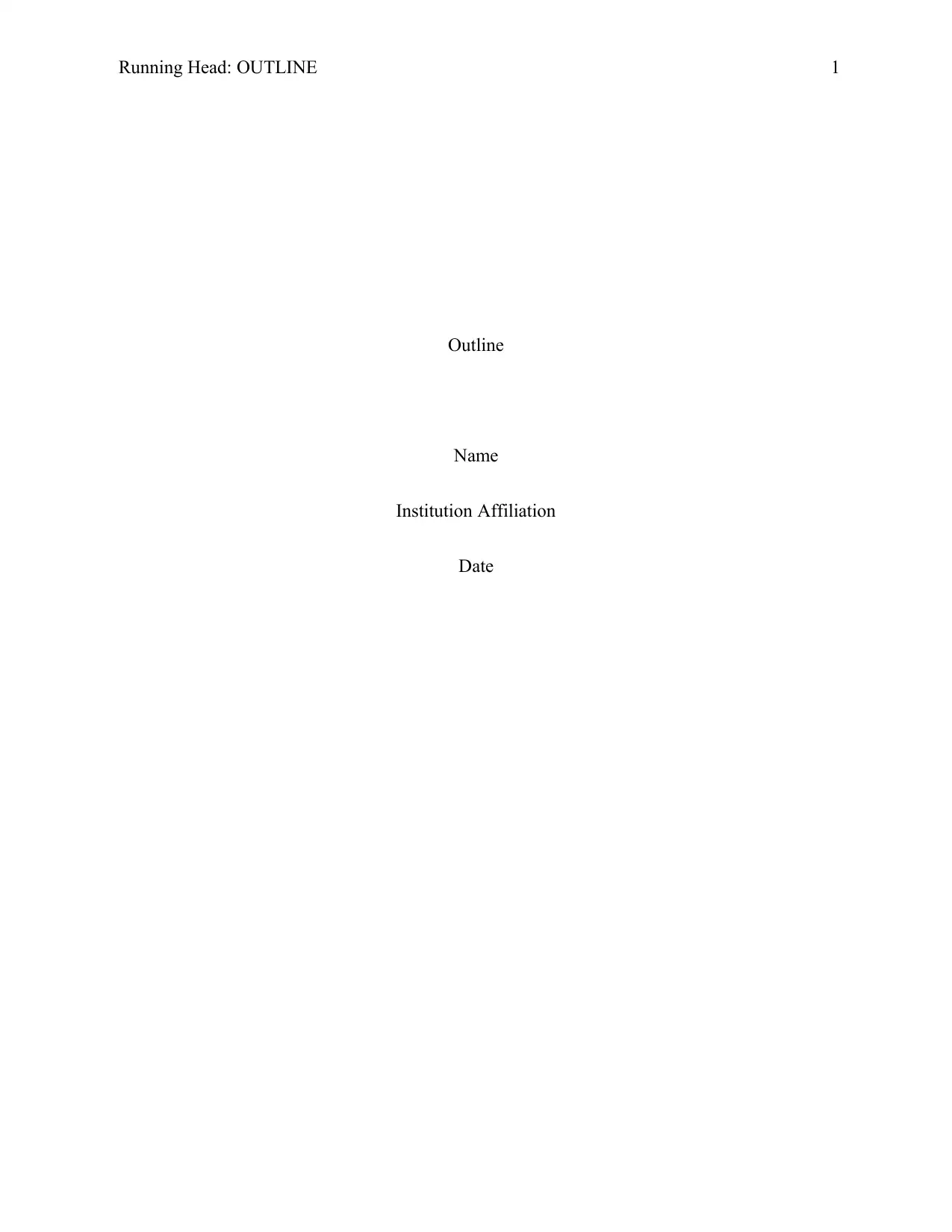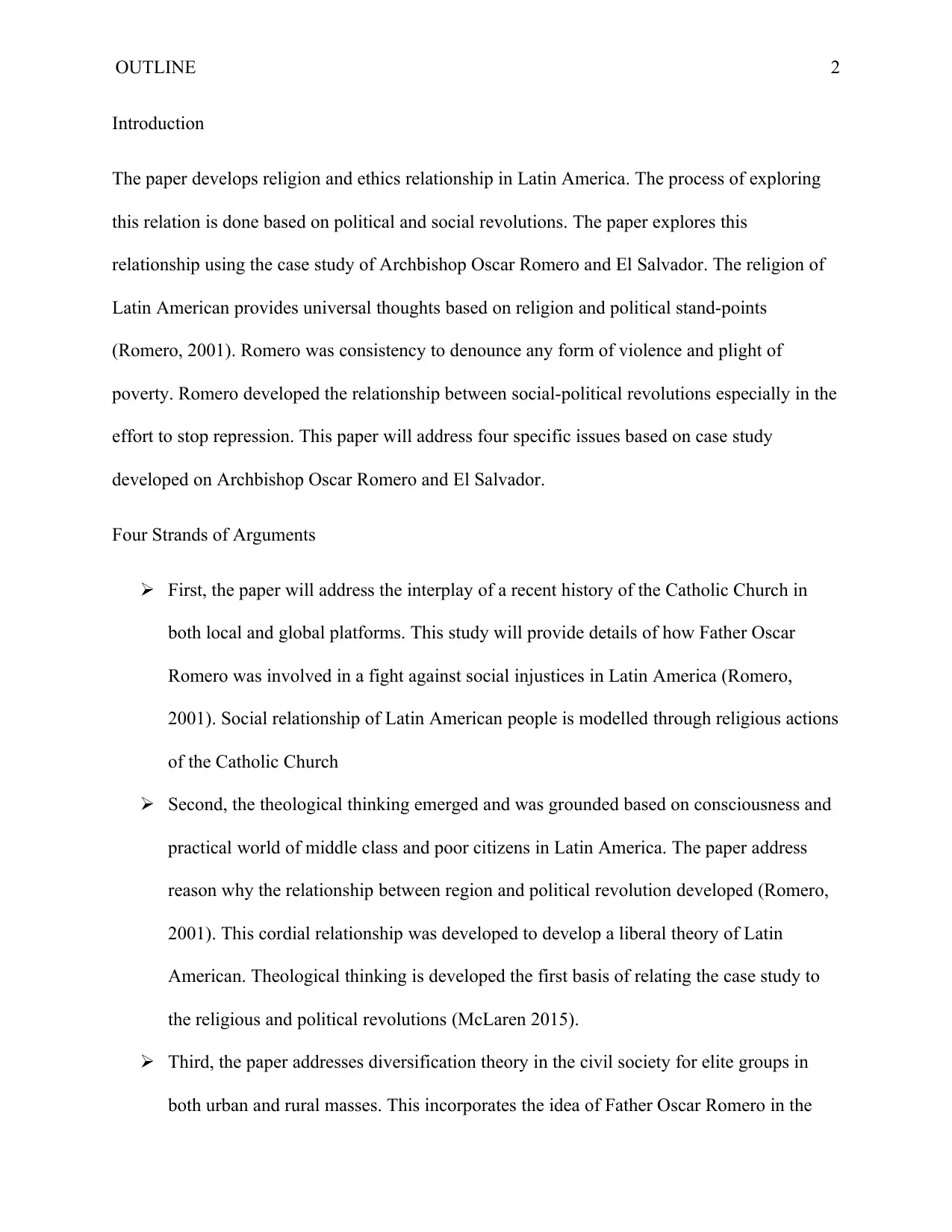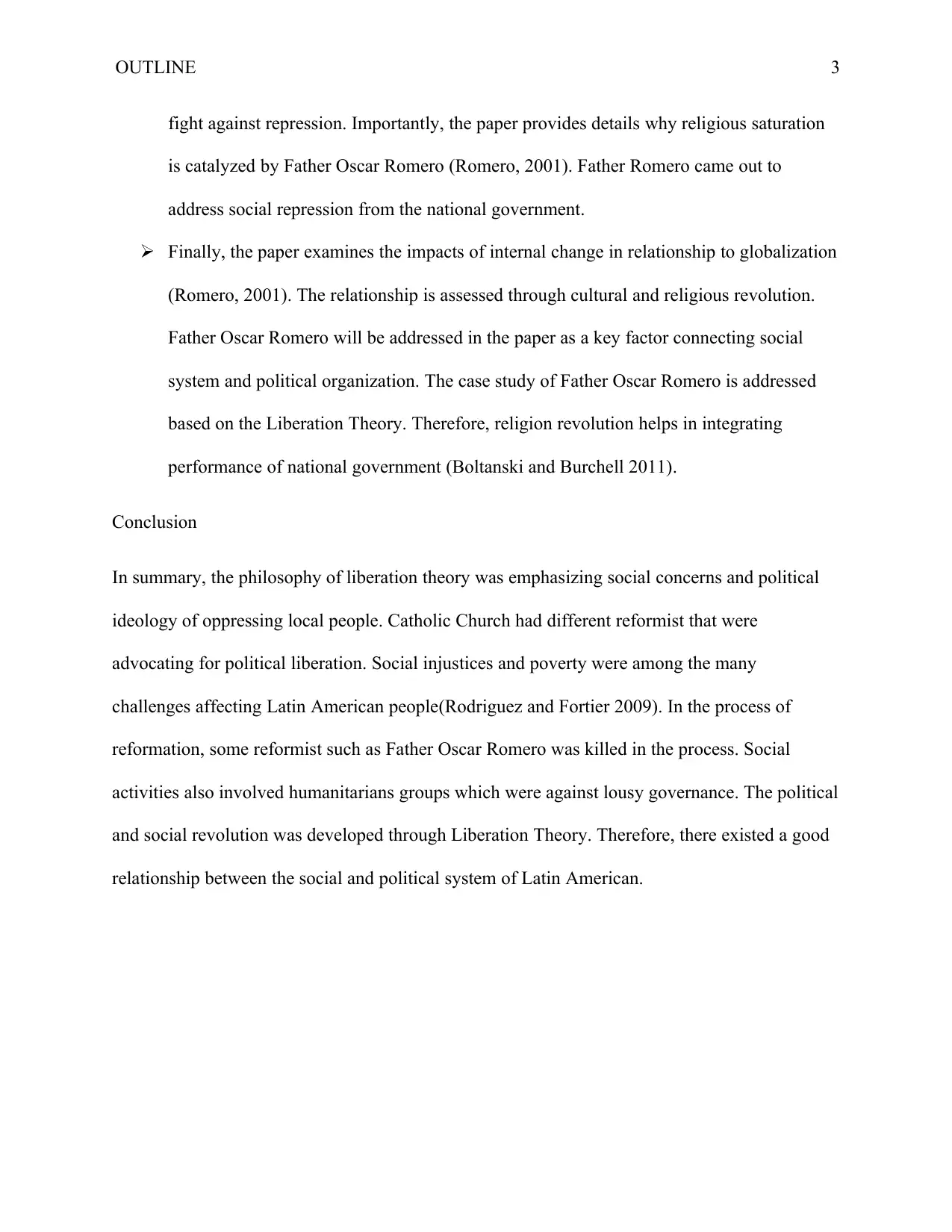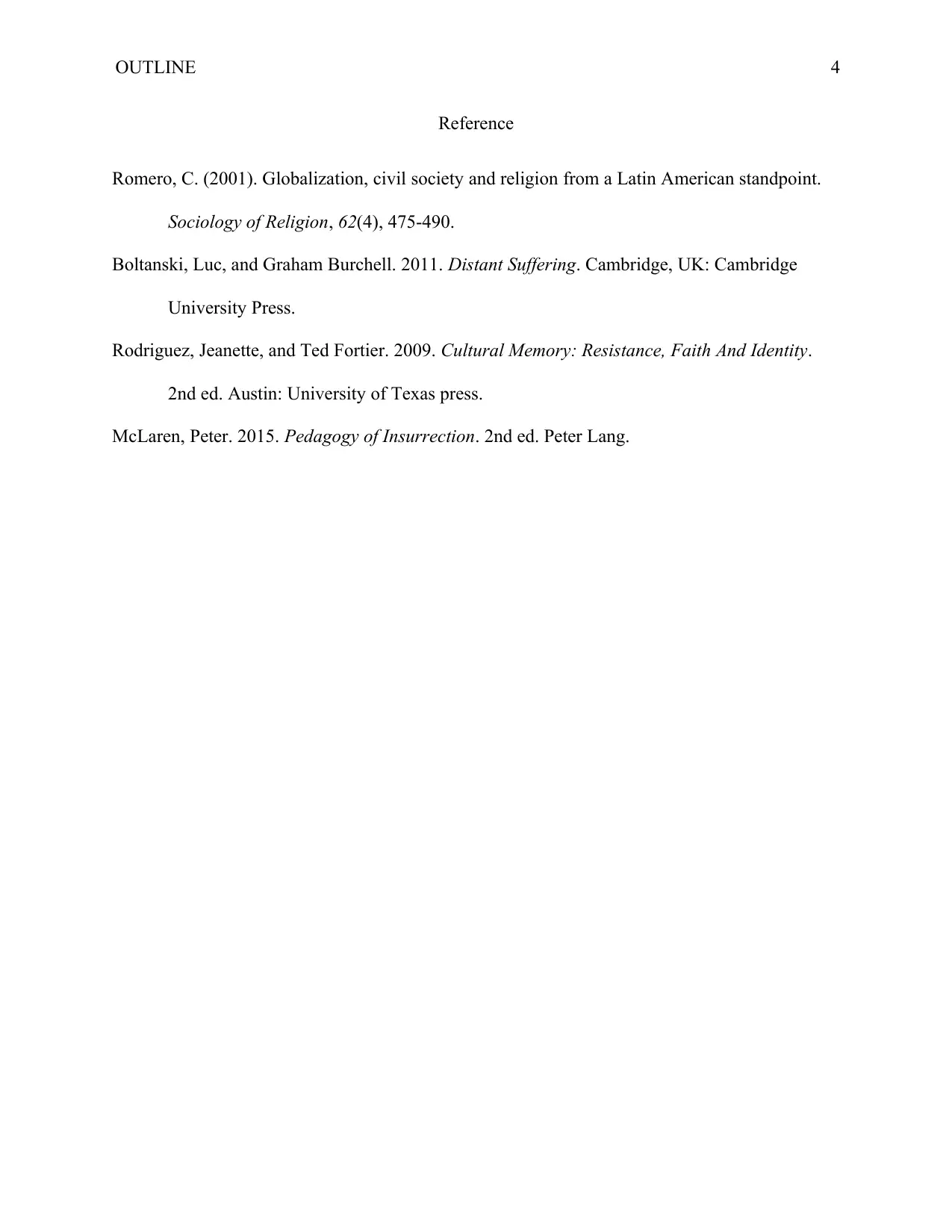Outline: Religion, Ethics, and Social Change in Latin America
VerifiedAdded on 2023/06/03
|4
|644
|347
Essay
AI Summary
This essay outline explores the relationship between religion and ethics in Latin America, focusing on the interplay of political and social revolutions. Using the case study of Archbishop Oscar Romero and El Salvador, the outline addresses the Catholic Church's role in social justice, the emergence of theological thinking grounded in the experiences of the poor and middle class, diversification theory in civil society, and the impacts of globalization on cultural and religious revolutions. The outline highlights Romero's fight against repression and the influence of liberation theory on integrating the performance of national governments, ultimately emphasizing the connection between social concerns and political ideology in Latin America.
1 out of 4





![[object Object]](/_next/static/media/star-bottom.7253800d.svg)